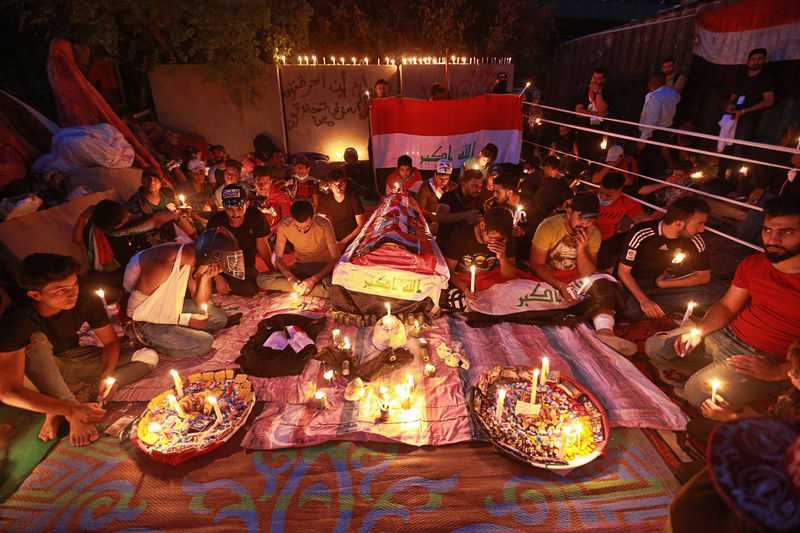Deaths mount in Iraq protests as internet cut
07 November, 2019

A mounting death toll in Baghdad and across southern Iraq coupled with renewed internet restrictions sparked fears Tuesday that anti-government protests would once again trigger chaos.
A first wave of protests that erupted on Oct. 1 met with brutal violence, with at least 157 people killed over six days, most of them protesters in Baghdad, according to an official investigation.
Many were shot dead from rooftops by “unidentified snipers,” the probe found.
Protests restarted after a two-week lull, a period of fewer deaths and an easing by the government of internet restrictions on social media sites.
But late Sunday and early Monday, the bloodshed resumed, with four protesters killed near the Iranian consulate in the Shiite pilgrimage city of Karbala.
On Monday evening, security forces fired live ammunition at crowds in Baghdad for the first time since rallies resumed, killing two people, medical sources said.
Two protesters were also shot dead in the southern city of Nasiriyah.
And on Tuesday morning, two protesters were killed when security forces attempted to break up crowds blocking the road to the southern port of Umm Qasr, the main entry point for imports of food and medicine.
The deaths brought the overall toll since Oct. 1 to more than 270 killed, according to an AFP count.
Officials have stopped providing running casualty figures.
The United Nations’ mission in Iraq raised the alarm on Tuesday over “serious human rights violations and abuses” in the second wave of demonstrations, saying dozens had been killed by security forces and armed groups.
Amnesty International has accused Iraqi forces of using two types of military-grade tear gas canisters that have pierced protesters’ skulls and lungs.
Anger over chronic unemployment and widespread official corruption initially fuelled the rallies.
But demonstrators have increasingly called for radical reform of the political system, and turned to strikes and sit-ins to press their demands.
In the southern cities of Kut, Nasiriyah and Diwaniyah, all government offices were closed on Tuesday.
And in the capital, demonstrators remained camped out in Tahrir Square, where they have set up tents and occupied buildings for more than a week.
The internet went down at midnight and briefly returned on Tuesday morning before being cut again. But protesters vowed to press on regardless.
“They already cut the internet once, and doing it again won’t do anything,” said Ammar, a 41-year-old protester in Tahrir.
Cyber security NGO NetBlocks said Tuesday’s blackout was “the most severe telecommunication restriction” imposed by Iraqi authorities since Oct. 1.
Iraqi leaders have scrambled to respond to protesters’ demands, but their proposals have yet to impress.
President Barham Saleh has proposed early polls once a new electoral law is agreed.
On Tuesday, he was in the northern city of Arbil to meet with Kurdish officials as part of talks to ease the crisis.
Embattled Prime Minister Adel Abdel Mahdi suggested early elections would be unrealistic under the current Constitution.
He spoke in a Cabinet session that, in a rare move, was recorded and later aired on television.Speech
TAG(s):
